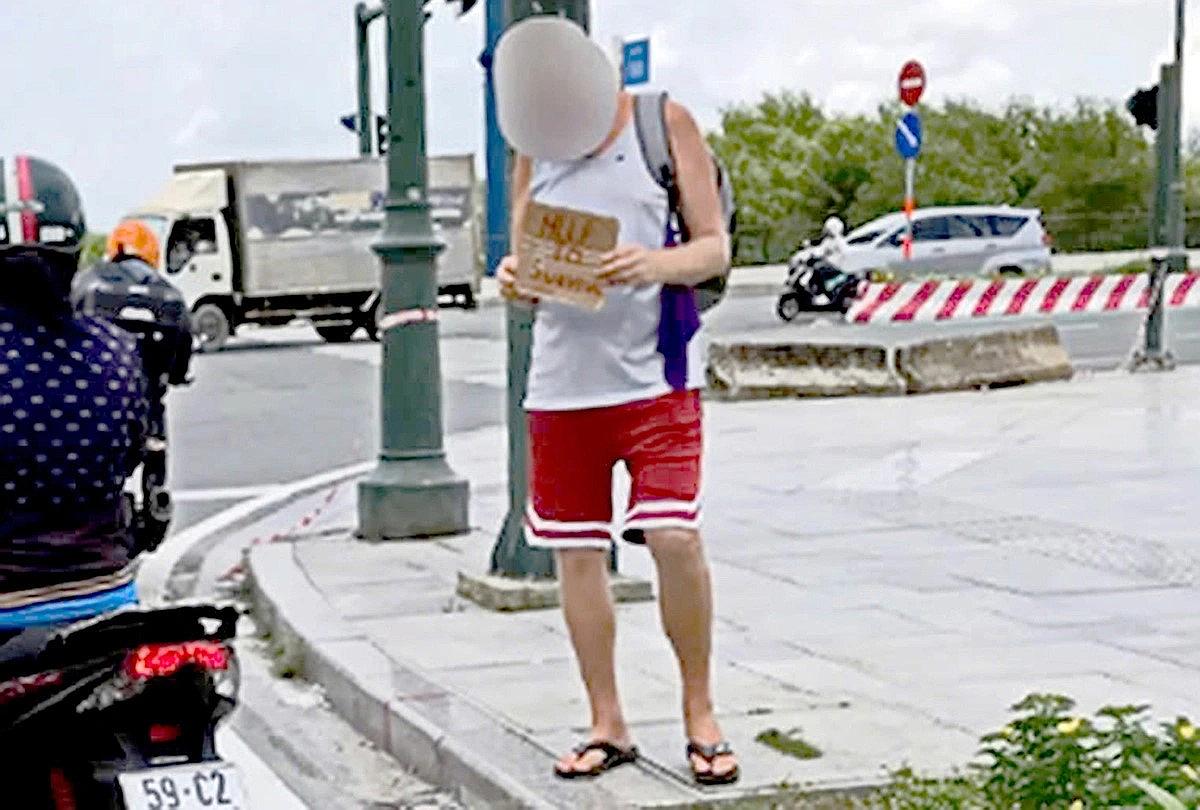Traveling, especially abroad, requires careful planning and ensuring one has enough funds. However, a curious trend has emerged: 'begpackers' or the act of roadside begging to fund travel expenses.
Recently, social media was abuzz with discussions about a photo of a foreign traveler in Vietnam holding a cardboard sign stating: "I'm traveling without money. Please support my trip."
In 2019, a forum for young travel enthusiasts featured a photo of two foreign men sitting on the sidewalk.
They held a sign written in Vietnamese: "Hello, I have traveled 25,000km by motorbike through Vietnam, Cambodia, Thailand, Malaysia, and back to Vietnam. Now, I want to go to China. Can you help? Thank you!"
In Phu Quoc, a popular tourist destination in Kien Giang Province, southern Vietnam, a foreign female tourist was seen meditating on the sidewalk with a sign saying: "Meditation for good luck. In need of money."
The creativity behind these requests for funds is puzzling, to say the least.
Backpacking or begging?
Many believe that such behavior tarnishes the image of responsible travelers and the backpacking community.
This type of 'traveling' relies on the generosity of locals and, in some cases, may lead to illegal work or undocumented status.
A few months ago, an international forum discussing issues in Vietnam raised the question: "Occasionally, when driving in Ho Chi Minh City, I see foreigners holding signs asking for money. I want to help, but I’m unsure if it’s genuine or a scam. What do you think?"
One widely circulated photo showed a large Western man standing at a traffic light, holding a sign reading: "Help to survive."
Foreign commenters, including expatriates in Vietnam, mostly condemned the act.
Many expressed shame and frustration, with one saying: "As a foreigner living in Ho Chi Minh City, seeing backpackers begging is more irritating than anything else. It’s likely they have enough money to live here but are exploiting the kindness of those who welcome them."
An American contributor added: "My spouse and I have average-income jobs in the U.S., and we don’t have much money, but we’ve always had wonderful experiences in Vietnam. Unless we lost all our documents or were cheated, there’s no reason to beg. Even in such cases, contacting family or friends back home would be far easier than asking strangers for money."
Similar discussions about 'begpacking' have surfaced in destinations like Thailand and Taiwan, where tourists rely on locals’ goodwill for personal gain.
Well-placed kindness
Vietnamese people are known for their generosity and hospitality, as seen in numerous videos and stories of locals helping foreign travelers in accidents or emergencies.
However, financially supporting someone’s vacation is a different matter.
It is crucial to exercise kindness wisely.
A particularly insightful comment on this issue came from a forum user: "If travelers are genuinely in trouble, they can contact family, friends, or employers for financial help via Western Union. Alternatively, they can reach out to their embassy or consulate. These options are quick and effective, especially with today’s technology."
Many tourists are aware of these avenues but choose not to use them.
Local authorities in areas with high international tourist traffic should adopt stricter measures to address cases of travelers who resort to begging.
Like us on Facebook or follow us on X to get the latest news about Vietnam!























































